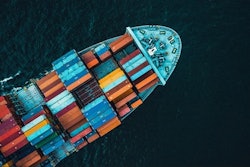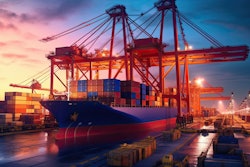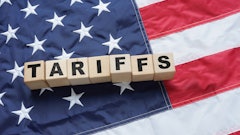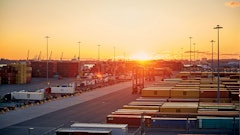
Multinational companies are facing rising political and security risks in nearshoring and friendshoring hubs, as they pivot their supply chains toward emerging markets to decrease exposure to widening geopolitical tensions and the strategic competition playing out between the West and China, according to a recent Verisk study.
“With the world in a state of extended instability, political risk and disruption triggered by geopolitics, conflict and economic instability will be hard to escape across many key sourcing locations,” says Olivia Dobson, principal risk consultant at Verisk Maplecroft. “Companies need to understand and get ahead of these localized but expanding political threats to protect flows of vital commodities and manufactured goods.”
Key takeaways:
- Analyzing five-year trends in 40 emerging markets that make up a major bloc of the nearshoring/friendshoring universe, data reveals increasing risk across a combination of issues in 27 of these countries. These include key manufacturing hubs, such as Indonesia, Mexico, Poland, Thailand and Turkey.
- Civil unrest is the standout threat, but disruption from other political risks, including government instability and exposure to conflict and terrorism, are also posing challenges that need to be factored into supply chain strategies.
- Over three-quarters of the emerging markets assessed saw a rise in civil unrest risks over the last five years, including Bangladesh (ranked the seventh highest risk country for the issue globally on the company’s Civil Unrest Index), Turkey (27th), Thailand (34th) and Indonesia (70th). According to the data, the deterioration is driven by a combination of global, regional and national issues, but economic inequalities remain the top factor.
- Wage-related protests in response to inequalities have had a particular impact on supply chains. Thousands of Bangladeshi textile workers forced the closure of hundreds of factories outside Dhaka in November 2023, with reports indicating that some facilities were ransacked during clashes. Widespread, coordinated industrial action at the end of 2023, including protests, also broke out in Indonesia over 2024 minimum wage levels.
- Mexico, for instance, has recently overtaken China to become the primary source of goods to the United States, ranking as the fifth highest risk country globally for civil unrest risks over the next 12 months.
“In an increasingly dynamic world, supply chain professionals looking to operate more strategically and build resilience need to create as much certainty as they can,” adds Dobson. “Tracking political risks in manufacturing hubs and logistics pinch-points, alongside using scenario analysis to map potential geopolitical shifts, can help organizations understand where the next shocks could come from.”


![Pros To Know 2026 [color]](https://img.sdcexec.com/mindful/acbm/workspaces/default/uploads/2025/08/prostoknow-2026-color.mduFvhpgMk.png?auto=format%2Ccompress&bg=fff&fill-color=fff&fit=fill&h=100&q=70&w=100)







![Pros To Know 2026 [color]](https://img.sdcexec.com/mindful/acbm/workspaces/default/uploads/2025/08/prostoknow-2026-color.mduFvhpgMk.png?ar=16%3A9&auto=format%2Ccompress&bg=fff&fill-color=fff&fit=fill&h=135&q=70&w=240)








